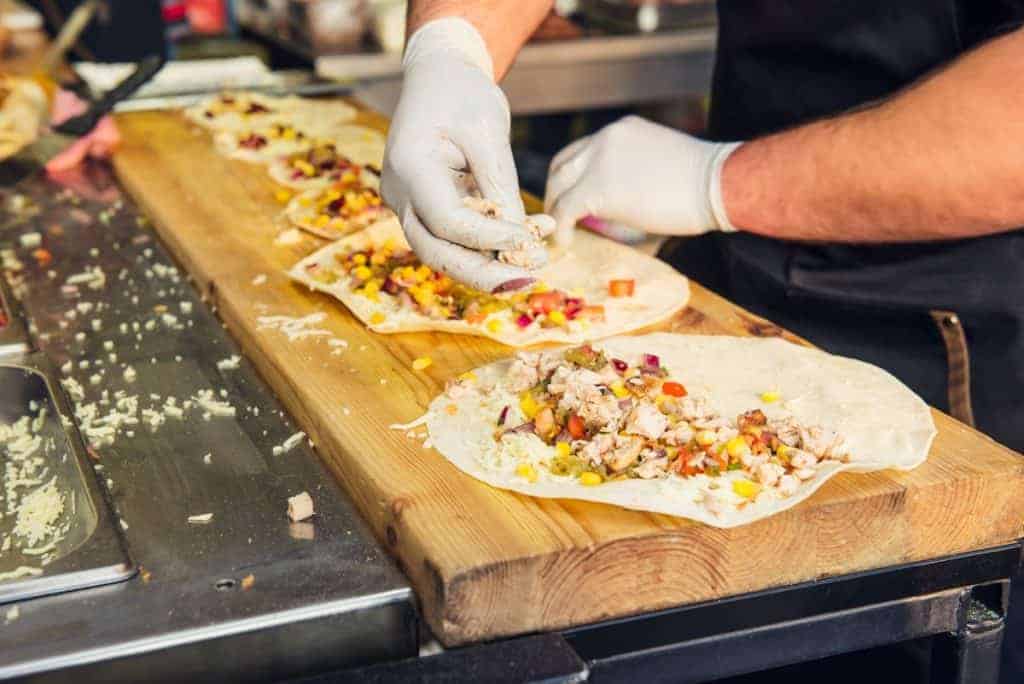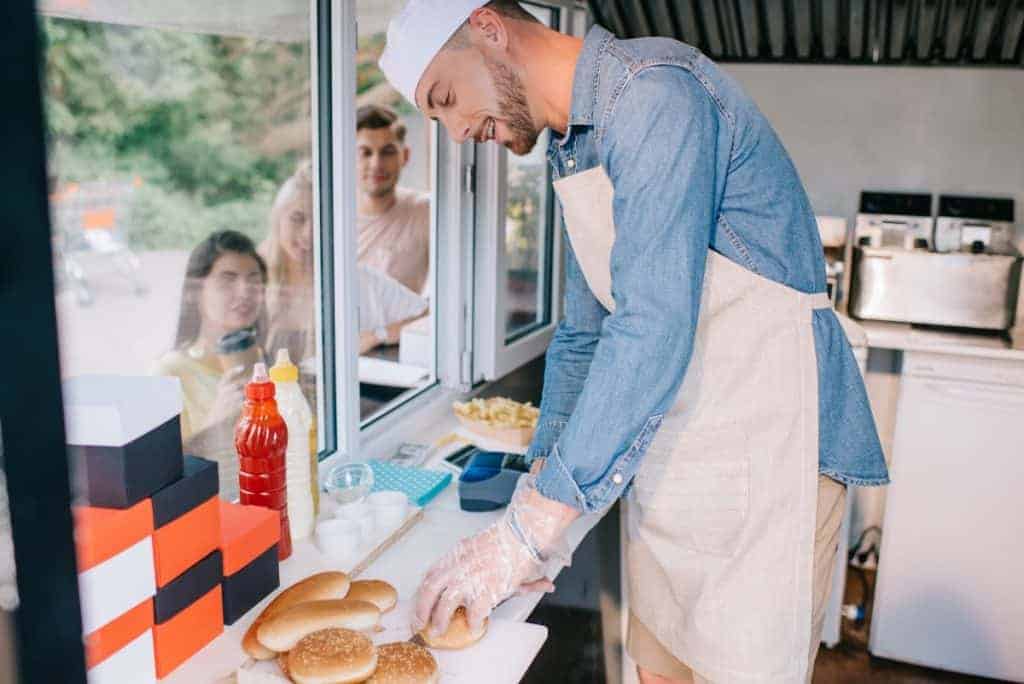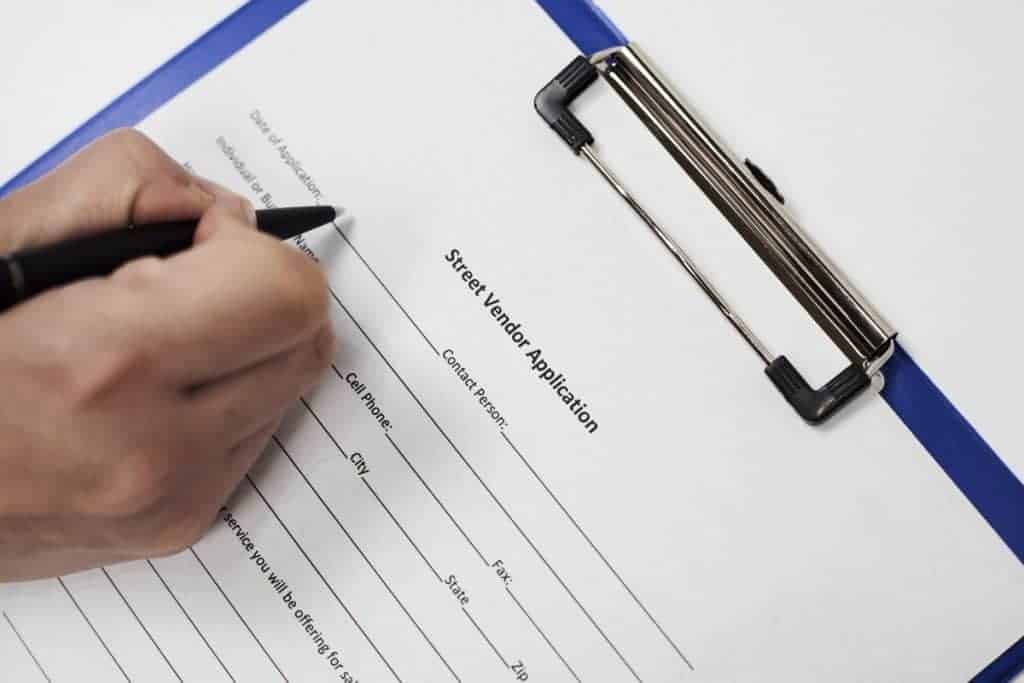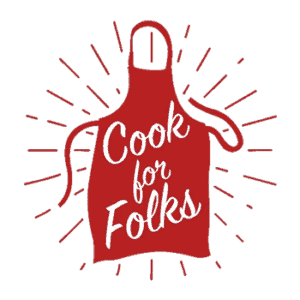This post contains affiliate links.

If you’re looking to sell food either as a grocer or a vendor, you might be wondering if you will need food handlers permit in order to operate the answer, is yes.
Generally, food handlers’ permits are needed to sell food. Not all states require a vendor to hold food handlers permit; as requirements can vary by state and county. However if not required in your area, a permit is always recommended as it will provide more legal backing for your business
Though a food handlers permit is not always required, it is always recommended and should strongly be considered when considering opening a business.
What Is a Food Handlers Permit?
A food handlers permit is a permit that anyone in the United State, or Canada, needs to operate lawfully as a food server. Food server doesn’t refer to your typical waiter or waitress at a restaurant, in this case, a server refers to whoever is providing the food or preparing it. A food handlers permit is also referred to as a food handlers license, food handlers card, or food handlers certificate. So if your state uses a different phrasing, you’ll know what they’re talking about.

Some places only require one person on-site to hold food handlers permit, and others require everyone involved to be licensed. Texas, for example, requires anyone who works with the equipment, utensils, “un-packaging food, or coming in contact with food surfaces,” to hold a license.
How Do I Get One?
In order to get a food handlers permit, there are going to be a few things that you’re going to need to go through.
1. Check Local Laws:
Most states vary in the requirement for certification. See what your state or city requires. In some states you may need more than just a license, in others, you may not need one at all. It all depends on the area. Government websites are the best for this type of information

2. Watch Your Time:
No one likes missing an important deadline, and this isn’t any exception. If you’re looking to hire, this is going to be important information to doll out as well. Some states require you to obtain a license 30-60 days within employment. So it’s important you watch out for time.
3. Take a Food Handlers Course
You and any potential employees will also need to take a handlers course. Check to see what courses are required within your state, ServSafe’s Food Handler course is accepted in all 50 states and costs only $15. The course typically lasts around one to two days, depending on your area.
is accepted in all 50 states and costs only $15. The course typically lasts around one to two days, depending on your area.
4. Take Your Exam

A handlers exam is admitted both in-person and online if attending ServSafe’s course. The exam is roughly 40 questions, and you’ll need a 75% minimum to pass. The ServSafe’s exam can only be taken 3 times, and some states require you to retake the course if you fail. Once you’ve passed you’re on to getting your certificate!
5. Receive Your License!
You’ve taken the course, you’ve passed the test, congratulations! You’ve received your license! Your license is typically either in a card, or certificate form and can be printed off or mailed to you. It’s important you keep a copy on hand wherever you plan on serving, just in case of emergencies.
Is One Needed In My State?
We checked all 50 states to see if you need a food handlers license! Here’s what we found:
| State | Required? Yes/No |
| Alabama | Based on County |
| Alaska | Yes |
| Arizona | Based on County |
| Arkansas | Not Required, but Recomended |
| California | Yes |
| Colorado | Not Required, but Recommended |
| Connecticut | Not Required, but Recommended |
| Delaware | Not Required, but Recommended |
| Florida | Yes |
| Georgia | Not Required, but Recommended |
| Hawaii | Not Required, but Recommended |
| Idaho | Not Required, but Recommended |
| Illinois | Yes |
| Indiana | Not Required, but Recommended |
| Iowa | Not Required, but Recommended |
| Kansas | Based on County |
| Kentucky | Based on County |
| Louisiana | Not Required, but Recommended |
| Maine | Not Required, but Recommended |
| Maryland | Not Required, but Recommended |
| Massachusets | Not Required, but Recommended |
| Michigan | Not Required, but Recommended |
| Minnesota | Not Required, but Recommended |
| Mississippi | Not Required, but Recommended |
| Missouri | Based on County |
| Montanna | Based on County |
| Nebraska | Based on County |
| Nevada | Based on County |
| New Hampshire | Not Required, but Recommended |
| New Jersey | Not Required, but Recommended |
| New Mexico | Based on County |
| New York | Based on County (Required in NYC) |
| North Carolina | Not Required, but Recommended |
| North Dakota | Not Required, but Recommended |
| Ohio | Not Required, but Recommended |
| Oklahoma | Based on County |
| Oregon | Yes |
| Pennsylvania | Not Required, but Recommended |
| Rhode Island | Not Required, but Recommended |
| South Carolina | Not Required, but Recommended |
| South Dakota | Not Required, but Recommended |
| Tennessee | Not Required, but Recommended |
| Texas | Yes |
| Utah | Yes |
| Vermont | Not Required, but Recommended |
| Virginia | Based on County |
| Washington | Yes |
| West Virginia | Yes |
| Wisconsin | Not Required, but Recommended |
| Wyoming | Not Required, but Recommended |
What if I Don’t Have One?
Often, if you do not have a food handlers license held by at least one member of your staff, you won’t be given an operator’s license which is crucial for businesses. However, if you happen to be a traveling business such as a food truck, and enter an area without proper paperwork, you may encounter large fines or even be shut down.
What Else Might I Need?

A food handlers permit is not all you’ll need for your business, here are a few things you may also need for your foodie endeavors.
Sellers Permit: A sellers permit is a permit required in some states in order to buy food or other products at wholesale price without tax, a permit most businesses choose to pursue
Health Department Permit: Any restaurant, grocer, or food truck, often requires a certificate from the state health department. A passing certificate ensures customers that your food is safe for consumption and your area is well cleaned and handled.
Fire Certificates: A fire certificate is given by the local fire department that ensures all of your equipment if you’re planning on cooking, is safe. They will have you adhere to certain regulations and will do routine inspections to make sure they’re kept up with.
Now that you know all the steps to grab your own food handler license and any other permits you may need, you should be ready to get out there and get your business going.

